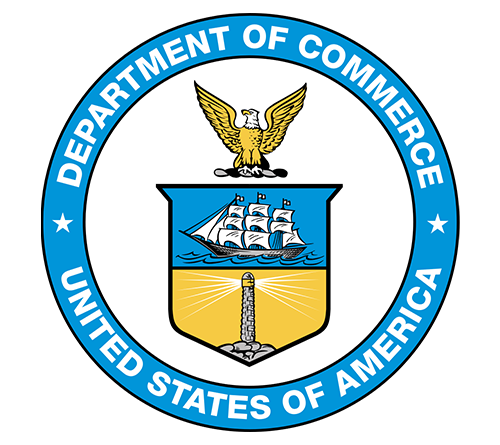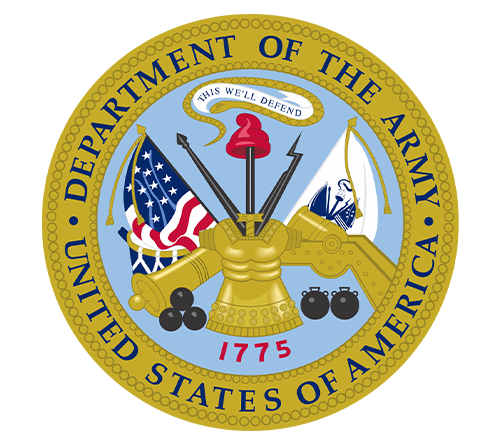A Guide for Hiring Managers on EEO and AAP Compliant Interviews
Cleared Workforce is a specialty search firm focused on security-cleared Talent Recruitment for Government Contractors.
Cleared Roles
Confidential, Secret, TS, TS/SCI, Poly
10+ Years
Industry Experience in roles we recruit for
Key Industries
Security, Cloud, Infrastructure, Engineering

Hiring managers play a critical role in ensuring that all interview processes are fair, inclusive, and compliant with Equal Employment Opportunity (EEO) and Affirmative Action Program (AAP) guidelines.
Once a recruiter has identified a candidate, it’s up to the hiring team to conduct interviews in a way that upholds these principles.
Understanding the importance of EEO and AAP compliance in interviews is essential for fostering a diverse, inclusive workplace and minimizing legal risks.
What are EEO and AAP?
Equal Employment Opportunity (EEO): Explains that EEO laws are designed to prevent discrimination based on race, color, religion, sex, national origin, age, disability, or genetic information in all aspects of employment, including hiring.
Affirmative Action Programs (AAP): Describes how AAP aims to ensure that minority groups, women, veterans, and individuals with disabilities have equal access to job opportunities. AAP compliance requires specific actions, particularly for government contractors, to improve diversity in the workplace.
Why EEO and AAP Compliance is Essential in the Interview Process
Promotes Fairness and Inclusivity
EEO and AAP compliance ensures that every candidate is assessed based on their skills, qualifications, and suitability for the job, rather than personal characteristics unrelated to their ability to perform. A compliant interview process sets clear, objective standards, allowing hiring managers to evaluate each candidate equitably.
This commitment to fairness helps create a level playing field where all candidates have an equal chance, regardless of race, gender, age, religion, national origin, or other protected characteristics. When interviews focus purely on job-related competencies, organizations are better positioned to hire the most qualified candidates, rather than inadvertently favoring one group over another.
This approach fosters trust, both within the candidate community and among existing employees, reinforcing the organization’s reputation as a fair and inclusive employer.
Reduces Legal and Financial Risks
Failure to adhere to EEO and AAP guidelines can expose an organization to significant legal and financial consequences. Non-compliant interview practices, even if unintentional, can lead to discrimination claims from candidates or government investigations.
Lawsuits arising from perceived or actual discrimination can be costly, potentially resulting in fines, settlements, or damages. Additionally, the organization may face legal fees and costs associated with remedial actions to rectify non-compliant hiring practices. Beyond direct financial losses, non-compliance can harm the organization’s reputation, making it more difficult to attract top talent in the future.
By adhering strictly to EEO and AAP guidelines, hiring managers minimize these risks, ensuring that every candidate is treated equitably and avoiding the potential fallout from non-compliance.
Supports a Diverse and Innovative Workplace
A commitment to EEO and AAP compliance not only aligns with legal obligations but also actively contributes to a more diverse, inclusive, and innovative workplace. When hiring managers prioritize diversity in their recruitment practices, they open the organization to a broader range of experiences, perspectives, and ideas.
Diverse teams have been shown to drive better business outcomes, as they bring multiple viewpoints to problem-solving, improve adaptability, and fuel creativity. EEO and AAP compliance supports the organization’s diversity goals by ensuring that every candidate is evaluated fairly, enabling a wider variety of individuals to contribute their strengths.
By fostering an inclusive workplace where everyone feels valued and empowered, organizations benefit from increased employee engagement and retention, which, in turn, boosts productivity and innovation across the board.
How to Conduct EEO and AAP Compliant Interviews
- Standardize Interview Questions: Encourage hiring managers to prepare a set of standardized, job-related questions that focus on the candidate’s skills, experience, and fit for the role. Avoid questions about personal characteristics (e.g., age, family status, ethnicity) that could lead to unintentional bias.
- Use a Structured Interview Process: Explain that a structured process helps ensure each candidate has a similar interview experience, reducing the chance of bias and ensuring all candidates are evaluated against the same criteria.
- Document Interview Notes and Feedback: Advise hiring managers to document their observations objectively and consistently, focusing on job-related strengths and areas for development. This documentation is important for accountability and transparency in the hiring process.
- Be Mindful of Unconscious Bias: Remind hiring managers to be aware of unconscious biases that can impact decision-making. Encourage techniques such as blind evaluations and training on recognizing and mitigating bias.
Examples of EEO and AAP-Compliant vs. Non-Compliant Interview Questions
1. Personal Life and Family Status
- Compliant Question: “This position may require occasional overtime. Are you able to meet that requirement?”
- Non-Compliant Question: “Do you have children, and how do you plan to manage childcare with this job?”
Explanation: Questions about a candidate’s family status, such as whether they have children, can lead to unintentional bias and are considered discriminatory. Instead, focus on whether the candidate can fulfill job requirements without making assumptions about their personal life.
2. Age and Graduation Dates
- Compliant Question: “Can you describe your experience with the latest project management software?”
- Non-Compliant Question: “When did you graduate from college?”
Explanation: Asking about graduation dates can reveal a candidate’s age, which is irrelevant to job performance and protected by EEO guidelines. Instead, focus on specific skills or experience relevant to the role, allowing candidates of all ages to demonstrate their qualifications.
3. National Origin and Language Skills
- Compliant Question: “This position requires strong written and verbal communication skills in English. Are you comfortable with that?”
- Non-Compliant Question: “Where are you originally from?” or “What’s your native language?”
Explanation: Asking about a candidate’s origin or native language can lead to discrimination based on national origin. Instead, clarify language requirements directly related to the job responsibilities without prying into a candidate’s background.
4. Religious Practices
- Compliant Question: “This role occasionally requires weekend work. Are you available to work on weekends as needed?”
- Non-Compliant Question: “Do you attend church on Sundays?” or “Do you observe any religious holidays?”
Explanation: Asking about religious practices is invasive and non-compliant. If specific availability is necessary, focus directly on the job requirement (e.g., weekend work) rather than asking about personal religious observances.
5. Physical Abilities and Disabilities
- Compliant Question: “This role involves lifting up to 50 pounds. Are you able to meet this physical requirement with or without reasonable accommodation?”
- Non-Compliant Question: “Do you have any disabilities?” or “Are you in good health?”
Explanation: Questions about disabilities or health are not compliant with EEO guidelines. Instead, specify any physical requirements for the role and ask if the candidate can meet them, allowing them to disclose any necessary accommodations if they choose.
6. Marital Status and Living Situation
- Compliant Question: “Are you willing to relocate for this position if necessary?”
- Non-Compliant Question: “Are you married?” or “Who do you live with?”
Explanation: Marital status and living arrangements are irrelevant to job performance. Instead, ask questions related to job requirements, such as the candidate’s ability to relocate or travel if those are essential aspects of the role.
7. Military Service
- Compliant Question: “Tell me about any relevant experience that may apply to this position.”
- Non-Compliant Question: “Were you honorably discharged from the military?”
Explanation: The type of discharge is a private matter, and asking about it could lead to discrimination. Instead, invite candidates to discuss relevant skills and experience gained in the military or other previous positions.
8. Gender and Gender Identity
- Compliant Question: “Can you explain how your skills align with the demands of this role?”
- Non-Compliant Question: “As a woman, how would you handle managing a mostly male team?”
Explanation: Bringing gender into the conversation is discriminatory and unnecessary. Focus on the candidate’s skills, experience, and strategies for managing teams, rather than their gender or how it may impact their role.
9. Financial Status
- Compliant Question: “This role has a salary range of $X to $Y. Are you comfortable with that?”
- Non-Compliant Question: “Do you have any other sources of income?” or “Do you own your home?”
Explanation: Financial status or personal wealth is irrelevant to job performance and should not be discussed. Instead, provide the job’s salary range and confirm that it meets the candidate’s expectations.
Final Tip
A good rule of thumb is to keep questions directly focused on the skills, qualifications, and experiences required to perform the job.
If a question doesn’t help determine if the candidate can do the job effectively, it’s likely not compliant and may inadvertently lead to bias.
If you’re looking to build a strong team of security-cleared professionals for your government contracts, Cleared Workforce is here to help. Our experienced recruiters understand the unique demands of government contracting and specialize in sourcing top-tier, vetted talent with the clearances required for success. From proposal support to key personnel placement, we ensure you have the right people to meet project requirements and drive results. Reach out to Cleared Workforce today to learn how our expertise can strengthen your team and support your mission. Let us handle the recruitment process so you can focus on delivering excellence in every contract.















